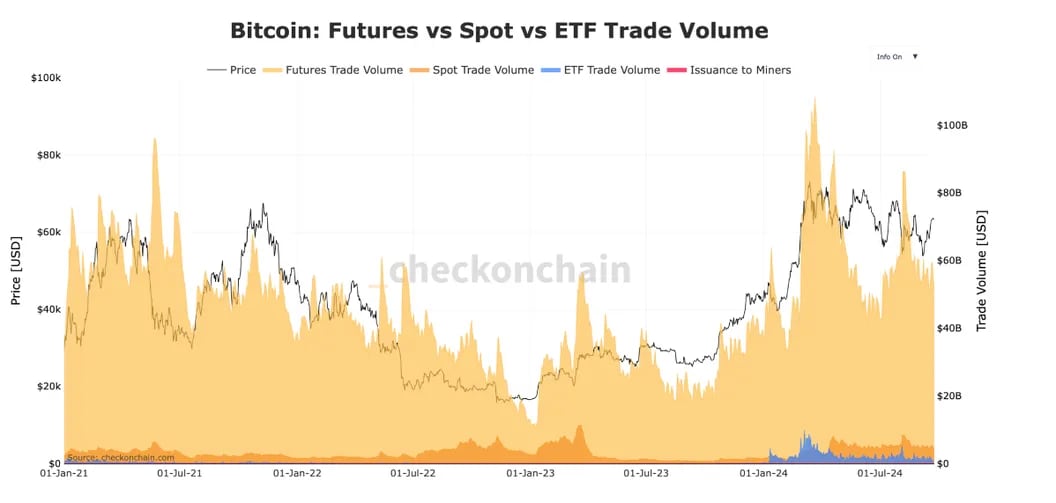
The Future of Bitcoin ETFs: Liquidity and Institutional Investment
As Bitcoin ETFs continue to gain momentum, a favorable environment for liquidity is setting the stage for long-term growth. Institutional investors are increasingly engaging with these ETFs, which are seeing remarkable net inflows.
Key Highlights:
- Bitcoin ETFs have recorded a total net inflow of $18.9 billion and currently hold around 869,000 BTC.
- They represent approximately 3% of the overall Bitcoin trading volume, which is expected to expand.
- One driving factor for the inflows is the ‘basis trade’, where investors capitalize on price discrepancies between spot and futures markets.
Growing Attention from Institutions
Bitcoin exchange-traded funds (ETFs) have attracted substantial media and investment attention throughout 2024, establishing them as one of the most successful ETF launches in history. Since their inception on January 11, they have amassed an impressive $18.9 billion in net inflows. Significant participants in this market include the iShares Bitcoin Trust (IBIT) and the Fidelity Wise Origin Bitcoin Fund (FBTC).
Market Dynamics
Despite the impressive inflows, the ETF market still constitutes a minor fraction of total Bitcoin trading volumes. On an average trading day in mid-October, Bitcoin futures saw $53.4 billion traded, while spot trading generated $4.5 billion, compared to only $2 billion for ETFs. This data underscores the significant potential for growth within the ETF market.
The Road Ahead
As more institutional players enter the market, the adoption of ETFs is anticipated to increase substantially. Notably, the approval of physically settled options related to IBIT could offer new avenues for passive income strategies and further engagement from sophisticated investors. These developments indicate that as ETF liquidity expands, it could facilitate greater market participation and pave the way for even wider adoption.



